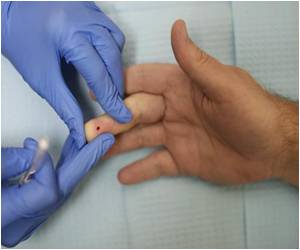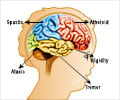Celine Dion’s one-in-a-million illness causes severe spasms that can break bones, eventually turning victims into human statues.
- In Stiff-person Syndrome, the body incorrectly attacks its nerve cells, resulting in severe rigidity
- Patients lose control of their motion and may experience scary muscle spasms
- Singer Celine Dion informed fans that she would have to cancel her forthcoming February tour as she has been diagnosed with the rare autoimmune condition
Stiff-person Syndrome: What is Celine Dion's 'human statue' illness
Go to source).
Read More..
What is Stiff-Person Syndrome
Stiff-person Syndrome (SPS) or Moersch-Woltman syndrome (MWS) is a rare autoimmune movement condition. It affects the central nervous system and affects roughly one in every million people. It is diagnosed in middle-aged people and causes chronic pain and spasms, which are usually triggered by noise, emotional distress, and light physical touch, as the patient, can experience muscle stiffening near the trunk and abdomen area, as well as stiffness around the legs and other muscles of the body.The disorder causes an altered posture over time, and in severe cases, it can potentially impede a person’s ability to walk or move.
Stiff-person Syndrome is more common in people who have conditions, such as
- Autoimmune diseases such as diabetes, thyroiditis, vitiligo, and pernicious anemia
- Cancers of breast, lung, kidney, thyroid, colon, and Hodgkin’s lymphoma (4✔ ✔Trusted Source
Stiff person syndrome (SPS)
Go to source)
Types of Stiff-person Syndrome
Classical Person Man Syndrome:
When rigidity and spasms occur in the back and stomach, as well as the thighs and neck on occasion. Over time, it might develop back curvature.Stiff-limb Syndrome:
Spasms mostly affects the legs and feet, occasionally causing them to become stuck in position. Hands can be impacted as well.Jerking Stiff-person Syndrome:
The rarest and most aggressive variant, which incorporates symptoms from both the others and affects the head and eyes (3✔ ✔Trusted Source
Stiff Person Syndrome-Rare Disease Database
Go to source).
Cause of Stiff-person Syndrome
The specific cause of this illness is unknown, although it is thought that the condition emerges when the immune system destroys healthy cells over time.Signs and Symptoms of Stiff-person Syndrome
It can take months or years for symptoms to appear. While some patients remain stable over time, others can deteriorate. Among the symptoms include muscle stiffness between the trunk and belly, stooped posture, painful muscle spasms, and difficult sleep (2✔ ✔Trusted SourceStiff-Person Syndrome
Go to source).
Diagnosis of Stiff-person Syndrome
Because of its rarity and perplexing symptoms, which are sometimes misdiagnosed as Parkinson’s disease or multiple sclerosis (MS), diagnosing the syndrome can be difficult. However, if doctors suspect Stiff-person Syndrome, two tests can prove it.The first scans the blood for antibodies to the previously stated protein, glutamic acid decarboxylase (GAD). High levels of GAD antibodies signal the possibility of Stiff-person Syndrome, while levels are also elevated in persons with type 1 diabetes.
The second test is an electromyogram (EMG), which evaluates muscle and motor neuron health. Doctors inject a needle directly into the afflicted muscles to record the electrical activity.
Treatment of Stiff-person Syndrome
Unfortunately, doctors cannot reverse or treat chronic illnesses. Nor can it be prevented. Treatments can, however, be offered to most individuals to assist reduce symptoms.Diazepam and baclofen, both of which suppress spasms, can help regulate episodes and minimize stiffness. Some patients with more severe symptoms use therapy to modify their immune systems to increase y-Aminobutyric Acid (GABA) levels. In some circumstances, immunoglobin infusions can be used to modify antibody levels in the blood. Sedatives and steroids, among other medications, may be administered.
Meanwhile, patients are frequently offered physical and aquatic therapy to improve the function of their muscles.
Complications or Stiff-person Syndrome
Stiff-person Syndrome is characterized by restricted movement and muscle spasms.These concerns can result in complications such as
- Depression and anxiety
- Broken or dislocated bones due to severe muscle spasms
- Frequent falls
- Sweating excessively (hyperhidrosis) (4✔ ✔Trusted Source
Stiff person syndrome (SPS)
Go to source)
Prognosis of Stiff-person Syndrome
The prognosis for stiff person syndrome varies according to the individual’s symptoms. The severity of the syndrome and the rate at which it progresses differ from person to person.Walking can grow increasingly difficult over time. Furthermore, a person’s ability to do regular, ordinary duties may deteriorate over time. Various treatments may help some patients reduce their symptoms. As the disease progresses, the increased danger of falling becomes a significant concern. Some persons may require the aid of a cane, walker, or wheelchair.
References:
- Stiff-person Syndrome: What is Celine Dion's 'human statue' illness - (https://www.hindustantimes.com/world-news/celine-dion-stiff-person-syndrome-celine-dion-health-stiff-person-syndrome-what-is-celine-dion-s-human-statue-illness-101670552577240.html)
- About Stiff-Person Syndrome - (https://www.ninds.nih.gov/health-information/disorders/stiff-person-syndrome)
- Stiff Person Syndrome-Rare Disease Database - (https://rarediseases.org/rare-diseases/stiff-person-syndrome/)
- Stiff person syndrome (SPS) - (https://my.clevelandclinic.org/health/articles/6076-stiff-person-syndrome)
Source-Medindia











